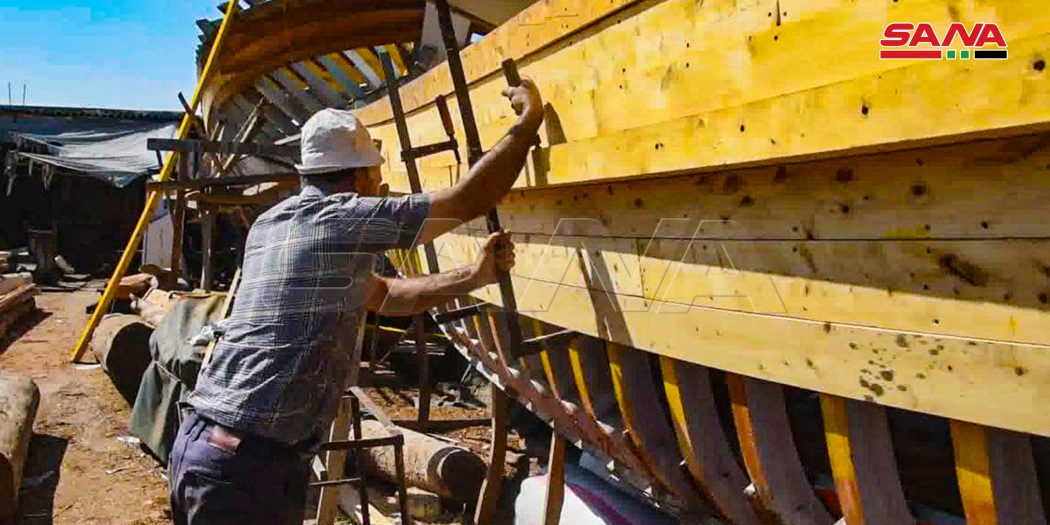The island of Arwad is known as the center of Syria’s boat-building industry. It’s one of the few places in Syria that’s been virtually untouched by 10 years of war, but it has not been spared from the impact of economic sanctions.
Arwad is Syria’s only inhabited island and has a rich history in boat building.
It was once a powerful Phoenician naval epicenter.
Every day, the sound of cotton rope hammered between keel planking echoes across this tiny island.
The residents of Arwad Island in Tartous have excelled in the industry of marine ships and wooden boats since ancient times.
They have inherited this industry from their Phoenician ancestors and they use different types of wood and manual tools.
“The industry of shipbuilding is learned by the sons since their childhood, not by academic study.” This was confirmed by Khaled Hammoud , who is one of Arwad Island residents and works in the shipbuilding industry.
He pointed out to the Syrian News Agency ( SANA) that the people of Arwad island are constantly trying to develop this industry, in which they have achieved continuous success until today, as they are able to manufacture the largest ships that match global industries.
For his part, Captain Farouk Bahlawan, who is also one of the residents of Arwad Island and works in shipbuilding industry, explained to SANA reporter that the shipbuilding in Arwad Island is characterized by high quality, durability and the ability to resist.
 He added that thanks to the experience they gained over many years, they have the ability to develop and modernize each boat or ship until they reach the form that is appropriate for each period of time.
He added that thanks to the experience they gained over many years, they have the ability to develop and modernize each boat or ship until they reach the form that is appropriate for each period of time. Member of the Executive Office of Craftsmen Union in Tartous Munzer Ramadan said that the boats and ships industry in Arwad is a historical Phoenician industry which was founded more than 2500 BC years ago .
He noted that shipbuilding industry is at risk of being disappeared as a result of the lack of financial returns for the workers in general, as most of the workers did not teach their children to use it as a source of livelihood.
Ramadan stressed the importance of finding a way to support and preserve this industry.
Rawaa Ghanam

